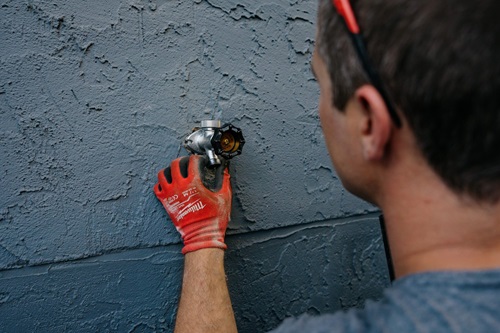 Friday, July 26, 2024
Friday, July 26, 2024  Friday, July 26, 2024
Friday, July 26, 2024 
Managing household water efficiently is crucial for conserving this vital resource, reducing utility bills, and promoting environmental sustainability. With increasing concerns about water scarcity and the environmental impact of excessive water use, it’s essential for property owners to adopt practices that optimize water usage. However, if you consider just a few simple strategies to help maintain and manage that water, you’ll be off to a great start. And if you ever run into problems, keep in mind that there are 24/7 plumbers always available. Let’s take a look at some of those tips and tricks for your home.
The first step in managing household water is understanding where and how it is being used. Typically, a significant portion of water consumption comes from showers, toilets, faucets, washing machines, and outdoor use. Getting plumbing services in Calgary to conduct a water audit can help identify areas of high usage and potential waste. Many water utility companies offer free water audit services, or you can use online tools and calculators to estimate your water use.
One of the simplest and most effective ways to conserve water is to fix leaks, because even small leaks can waste a substantial amount of water over time. Check for leaks in faucets, toilets, and pipes regularly; it’s important to know that dripping faucet can waste up to 3,000 gallons of water per year, while a leaky toilet can waste up to 200 gallons per day. Fixing these leaks can lead to significant water savings and lower water bills.
Upgrading to water-efficient fixtures is an effective way to reduce water consumption. Low-flow showerheads, faucets, and toilets are designed to use less water without compromising performance. For example, a low-flow showerhead can reduce water usage by up to 50% compared to a standard one. Similarly, dual-flush toilets offer two flushing options, using less water for liquid waste and more for solid waste, leading to substantial water savings.
Simple changes in daily habits can make a big difference in water conservation. Here are some practices to consider:
Outdoor water use can account for a large portion of household water consumption, especially in areas with extensive lawns and gardens. Adopting water-smart landscaping practices, also known as xeriscaping, can significantly reduce outdoor water use. Here are some tips:
Rainwater harvesting is an excellent way to supplement household water use. With the help of a 24/7 plumber, you can install rain barrels or other collection systems; this allows for you to capture and store rainwater for various non-potable uses, such as watering plants, washing cars, and cleaning outdoor surfaces. This practice not only conserves potable water but also reduces stormwater runoff, helping to prevent erosion and water pollution.
Greywater systems recycle wastewater from showers, sinks, and washing machines for use in irrigation and toilet flushing. Implementing a greywater system can reduce the demand on freshwater supplies and lower your household’s overall water consumption. Before installing a greywater system, check local regulations and guidelines to ensure compliance with health and safety standards.
Incorporating smart technology into your household can further enhance water management efficiency. Smart water meters and leak detection systems provide real-time data on water usage, helping homeowners identify patterns and pinpoint areas where water is being wasted. These devices can alert you to leaks or unusual water usage, allowing for prompt action to prevent water waste and potential damage.
Managing household water efficiently is essential for conserving this precious resource and reducing environmental impact. These strategies not only contribute to a more sustainable environment but also result in cost savings and a more resilient long-term water supply. Embracing these practices is a vital step toward ensuring the availability of clean water for future generations.
Check out more news, articles and blogs here